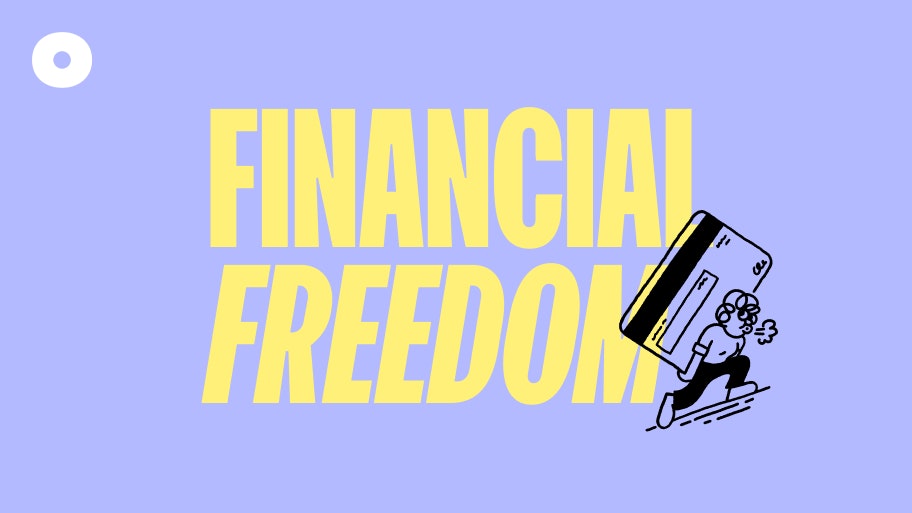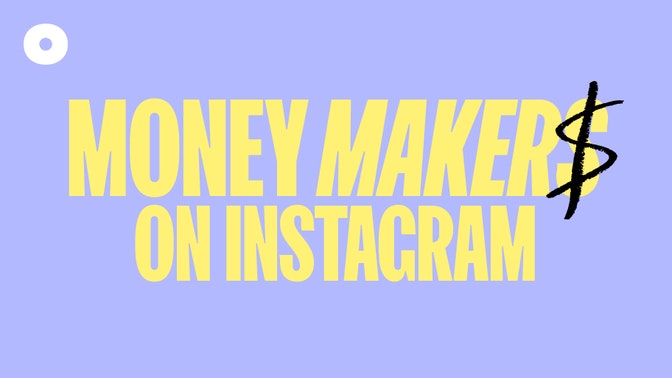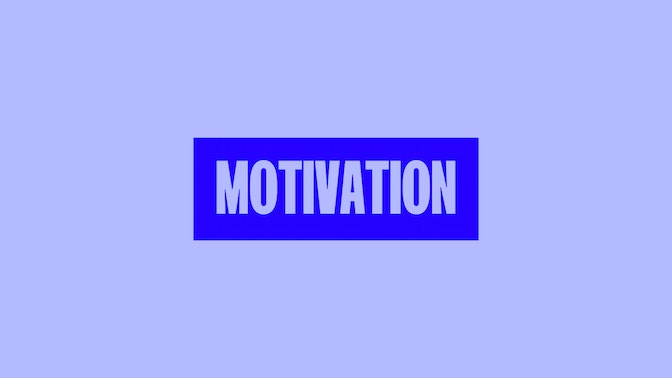Financial freedom. It can sound like a nice theory. But the truth is, it’s possible for anyone to achieve. And I mean anyone – even someone who once had tens of thousands in student loan debt like yours truly. No matter what financial troubles you have today, there’s always a way to get back to black. Perhaps trying abudgeting appis your first step.
In this article, we’ll dive into the importance of financial freedom and share some financial freedom tips, including a few that worked for me.
Post Contents



What is Financial Freedom?
Financial freedom is about taking ownership of your finances. You have a dependable cashflow that allows you to live the life you want. You aren’t worrying about how you’ll pay your bills or sudden expenses. And you aren’t burdened with a pile of debt.
It’s about recognizing that you need more money to pay down debt and maybe increasing your income with aside hustle– we’ll get to that in just a minute. It’s also about planning your long-term financial situation by actively saving for a rainy day or retirement.
→ Click Here to Launch Your Online Business with Shopify
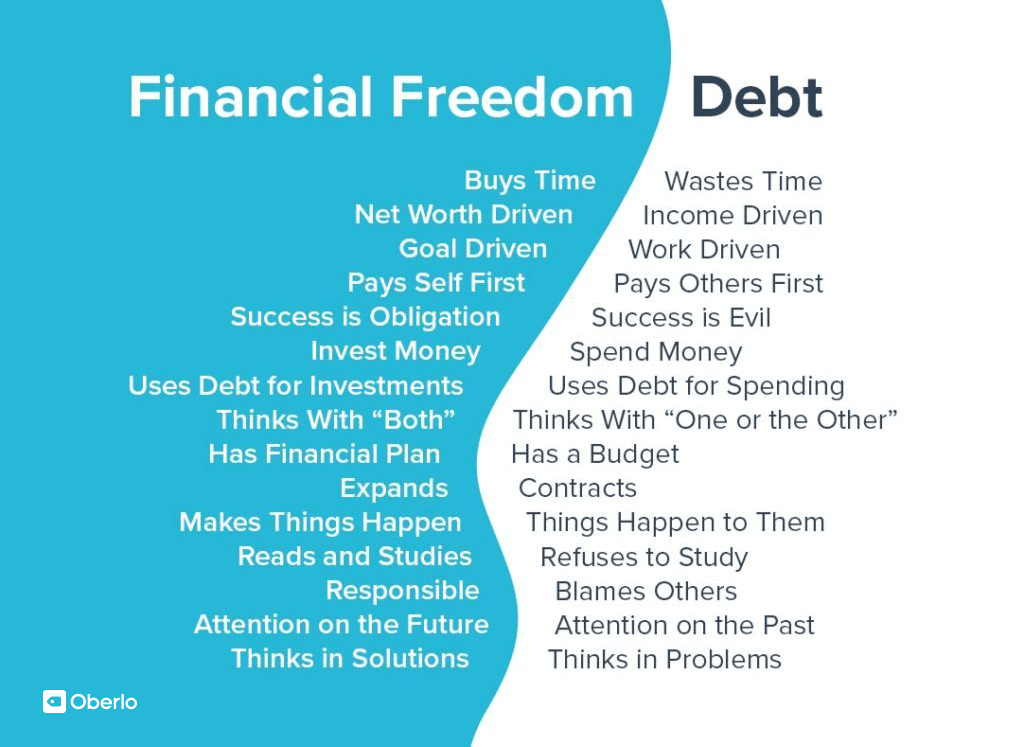
10 Game-Changing Financial Freedom Tips
1. Understand Where You’re At
You can’t achieve financial freedom without knowing your starting point. Looking at how much debt you have, how much savings you don’t have, and how much money you need can be a depressing reality. But this is a valuable step in the right direction.
Compile a list of all your debts: mortgage, student loans, car loan, credit cards, and any other debt you may have accumulated. Don’t forget to include any money you may have borrowed from friends or family members over the years.
Now, take a deep breath. And another one. Then add up all the numbers.
How much debt do you have?
If it’s a big number, don’t freak out, I promise I’ll share some ways to pay that down later in this article. If it’s a small number, congratulations! Feel free to share your financial freedom tips in the comments below.
Next, take a look at all the money you have saved up.
编译所有积蓄的列表:储蓄accounts, stocks, company stock-matching programs, company retirement-matching programs, and retirement plans. Then we’ll add the recurring monthly payments you receive such as salary, side hustle money, and so on.
Keep these numbers in mind as we work through the next few financial freedom tips.
2. Look at Money Positively
Debt can definitely be a little bit discouraging.
But remember that money is a good thing, even if it seems to carry a lot of burden right now.
You deserve to achieve financial freedom.
According toYou Are a Badass at Making Money by Jen Sincero, people who don’t make a lot of money often feel shame when it comes to making money. And so the biggest obstacle that many people experiencewhen it comes to making money是,他们觉得有钱是坏的。许多feel guilty for having it and guiltier for wanting it.Sincerohas said about money, “We use it everyday to enhance our lives, yet we always seem to focus on the negative about it.”
Money is simply a necessity like food or water. It helps you buy the things you need and live the life you want.
To experience financial freedom, you’re going to need to look at money as a tool to help you achieve your dreams, fuel your energy, and live a stress-free life you can enjoy.
Because if you view money negatively, you’ll subconsciously sabotage your chances of making it and keeping it.
3. Write Down Your Goals
Why do you need money?
你想摆脱债务好吗?你是维esperate to escape the 9-to-5 grind? Is there a place you’ve always wanted to travel to? Do you need to save for a wedding, kids, or retirement?
When I achieved financial freedom, it was because I tied it to an emotional goal. My goal was to get out of student loan debt and save for my first home. And honestly, it was a euphoric experience watching the debt dwindle away and my savings rise.
我很兴奋看到数字变化I worked harder to make more money to see a bigger change in my personal finances. Would I have achieved my goal of financial freedom if I hadn’t tied the goal to something emotional? Probably not. I was desperate to get out of debt and move out of my parent’s house. That desperation kept me motivated throughout my journey.
Another interesting thing happened. In February 2016, I wrote on a scrap piece of paper a few of my goals:
- Make $100,000 selling products online
- Save $20,000 for a down payment
- Pay off $24,000 worth of student loans
I ended up misplacing that paper and completely forgot about it. And then one day, just over a year later, when I was already living in my new home, I found the it in my notebook. Sure enough, I had accomplished all three things. The funny thing was that I wasn’t even consciously thinking about those goals.
You might not accomplish everything you want in a month. But a year is a long time to make progress on your goals. Make sure your goal is tied to a specific number that you want to hit. Believe it or not, you’ll start working towards those goals without even realizing it.
Knowingexactlywhat you want to achieve makes achieving financial freedom a million times easier.
4. Track Your Spending
An important step toward financial freedom is tracking your spending.
You can use a tool likeMint, which will let you know how much money you’re spending, which categories you’ve overspent in, how much money is in all of your accounts, and how much debt you have.
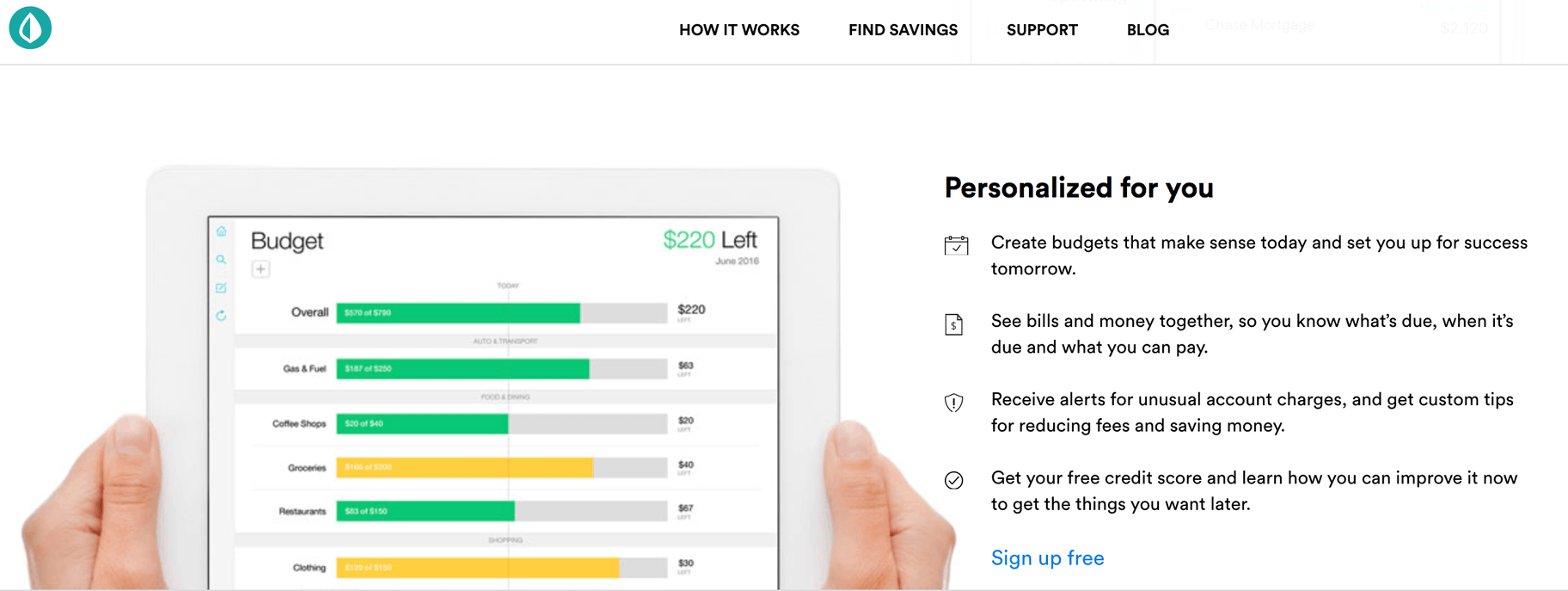
Another cool thing about Mint is that it allows you toset goalswithin the dashboard. You can keep track of your goals and know the exact month you’ll be expected to hit the goal based on how much money you put in. Thus, keeping you accountable and reminding you to keep putting money towards it for you.
After using Mint for one month, I managed to save some extra money towards my new wedding fund goal. Mint helped mestay focusedon my goal and pushed me towards creating more passive income to hit my financial milestones.
5. Pay Yourself First
You’ve probably heard the expression “pay yourself first” before. But in case you haven’t, “pay yourself first” means putting a specific amount of money in your savings account before paying anything else, such as bills. And the act of paying yourself first has helped countless people inch closer to achieving financial freedom.
Why?
Because if you want to pay yourself $1,000 per pay period first, then whatever’s left over needs to go towards bills. And if you don’t have enough to cover those bills, then you’re forced to pick up a side income to make up the costs.
By paying yourself first, you guarantee that you’re always putting money aside to invest in yourself. By doing the opposite, you only get whatever is left over, which usually isn’t substantial enough to help you experience financial freedom.
You can pay yourself first in other ways too. For example, if your company has a retirement savings program, you can ask to have money withdrawn for your retirement. That way you’re investing in yourself and your future first. The money gets deducted from your pay so everything that’s left over is money that you can put aside for your bills and expenses.
6. Spend Less
In 1958, Warren Buffett purchased afive-bedroom home for $31,500and hasn’t moved out of it since. His net worth? An astounding $90.3 billion. He can afford a bigger and more expensive home. But his frugality might very well be the reason why he’s one of the world’s richest people.

Kanye West, on the other hand, isn’t afraid to flaunt his money. He lives in a$20 millionmansion. And at one point, with $53 million of debt, he decided toask Mark Zuckerberg for $1 billion… on Twitter.
The difference between the two super successful gentlemen? Buffet didn’t spend more than he needed to, and West spends money he doesn’t have.
The truth is, plenty of rich people don’t look like rich people. Zuckerbergliterallywears the same boring t-shirt and jeans everyday.
Buying less stuff can actually help you get richer.
By spending less, two things work in your favor. One, you’ll have more money to put aside for your financial freedom. Two, you’ll learn that you actually need a lot less stuff to survive, which also helps you put aside more money.
And this goes into our next point…
7. Buy Experiences Not Things
Life’s short. It’s not about hoarding all your cash until you’re 65. You’re allowed to enjoy life while you’re alive.
Ultimately, the things that’ll help you live a more fulfilled life will be the experiences you have, not the products you own.
And are the things you buy making you happier over the long-term? Does the debt you have from buying a bunch of stuff make your life easier?
Now let’s flip the switch.
What’s your happiest memory? What were you doing? Who were you with?
Let’s create more memories just like that.
Maybe you have a friend you love working out with. Invite her over to workout to a YouTube playlist at home for free.
It’s date night. You want to make it unforgettable. Find a cool activity you’ve never done before onGrouponfor a fraction of the price.
You’ve always dreamed of travelling to Rome. You’ve been saving up money for a year to experience your dream vacation. Go on that vacation feeling guilt-free. You didn’t go into debt for it, you’ve earned it. Or you can become adigital nomadand travel the world while working abroad.

Life is made up of moments. The best ones come from quality time spent with friends and family. While some products can help bring you closer to your family (like weekly family video game night) most of them don’t add much value.
Don’t spend money you don’t have to pretend that you have money.
8. Pay Off Debt
Some people will tell you it’s wiser to invest your money in stocks instead of paying off your debt. If you’re an expert stock picker, maybe that’s true. But if you’ve never invested in stocks before, you could wind up with more debt.
A lot of people feel the same thing after finishing their last debt payment: relieved.
If you have $50,000 of debt, even if you have $30,000 cash in the bank, you can’t really call yourself financially free. You’re still $20,000 in the hole.
While paying someone else isn’t as glamorous as having money in the bank, it does bring you closer to financial freedom.
There are two main methods of paying off debt: snowball and avalanche. Snowball is when you pay off the smallest debt first. Avalanche is when you pay off the debt with the highest interest rate.

You need to decide what works best for you. But when I was working towards becoming debt-free, I did the snowball effect. It helped keep me more motivated. Since I was able to get rid of my first debt, a $1,200 credit card bill, in only a month, the feeling of accomplishment helped motivate me to tackle a much bigger, lingering student loan.
And since credit cards were no longer a problem, I would pay about, on average, three times more than the measly $300 minimum payment. In the end, it took about three years to finish paying off the student loans instead of the nine years I was allotted.
Paying off a big debt lifts a massive weight off your shoulders. After paying off your debt, you see the amount of money you have in the bank rise. It’s an awesome feeling watching the number climb (even if you had to watch it fall at the beginning), and it keeps you motivated to continue growing it.
9. Create Additional Sources of Income
Okay, so at this point, you’re probably thinking, “My debt is a lot more than my salary, how can I pay it off if I don’t make enough?”
If you’re serious about financial freedom, you’ve got to sacrifice some blood, sweat, and tears.
Your 9 to 5 might not cut it. If that’s the case, you need to step it up and look for money outside your current job.
Some experts recommend havingseven streams of income. If you have a 9 to 5 job, congratulations, you have one, only six more to go!
Now, you can look at your sources of income in two ways: active income (trading time for money) or passive income (money that can keep coming in, even while you sleep).
If you trade your time for money, you’re limited by the hours of the day. Here are a few side jobs you can do to earn an active income:
- Become a freelance writer finding jobs onProBlogger
- Help a business owner as a virtual assistant with jobs onUpwork
- Acquire new skills viaonline courses for entrepreneursand monetize
- Become anUber driver
- Help with household tasks onTask Rabbit
- Pick up the odd, ocassional job onCraigslist
- And more!
If you don’t have a lot of time to devote to earning income, you can focus on increasing your income streams with passive income like:
- Starting adropshipping online store with Shopify
- Start your own customclothing businessonShopify
- Sell profitable content (blog, ebooks, courses, webinars, audiobooks, podcast, apps)
- Become anaffiliate marketer
- Buy properties and rent them out
- Invest in stocks
Fortunately, your seven streams of income can all come from the same source. For example, if you’re an ecommerce expert, yourstreams of incomecan come from creating seven different stores. And remember: you don’t need to start with seven streams, you can build up to it over time.
10. Invest in Your Future
The last financial freedom tip is an important one. Say you follow the advice and recommendations in this article, get out of debt, and grow your savings. That might be enough to help you out right now. But what if the unexpected happens? Will you be prepared for it?
It’s important to set aside money for rainy days, retirement, and (sorry to be morbid here) in case you die to help ensure your family doesn’t drown paying for your funeral, debts, and taxes. Okay, now let’s get back to that happy place.
If you’ve got that 9 to 5 job, talk to your company about adding a retirement plan, or check to see if you’re already having deductions made towards it. The deduction gets taken out before it hits your account, so you never feel like you’re losing money. And it’s pretty cool to check it out periodically and see your savings grow.
Next, you also want to save enough money for an emergency fund. Some experts say $10,000 is fine while others say six months of your salary. And to be honest those numbers can seem pretty high if you don’t make a lot of money. So instead, start with a goal you can afford – like $100 your first month. And as you start earning more active or passive income, start increasing your goal to $500 a month to $500 bi-weekly and so forth. If you’ve overspent on credit and a high credit card bill comes up, don’t use your emergency fund – focus on taking up more active income opportunities so you can pay it down faster.
The emergency fund is only for unplanned emergencies like a tree crashing onto your house, a car accident you need to pay for out of pocket, or a visit to the hospital.
By setting aside money for rainy days and retirement, you’ll be less likely to end up back to where you are now: wishing for financial freedom.
Conclusion
Financial freedom can help you take ownership of your finances and, more importantly, your life. It’s about living within your means, being a bit frugal, and making sure that money is spent on things you really need like food, shelter, and yup even vacations (relaxation is important too, you know). By following the financial freedom tips in this article, you’ll inch closer to achieving the financial freedom you deserve. So take a look at those finances, build additional streams of income, pay down that debt, and before you know it you’ll be free.
How close are you to achieving financial freedom? Let us know in the comments below!



